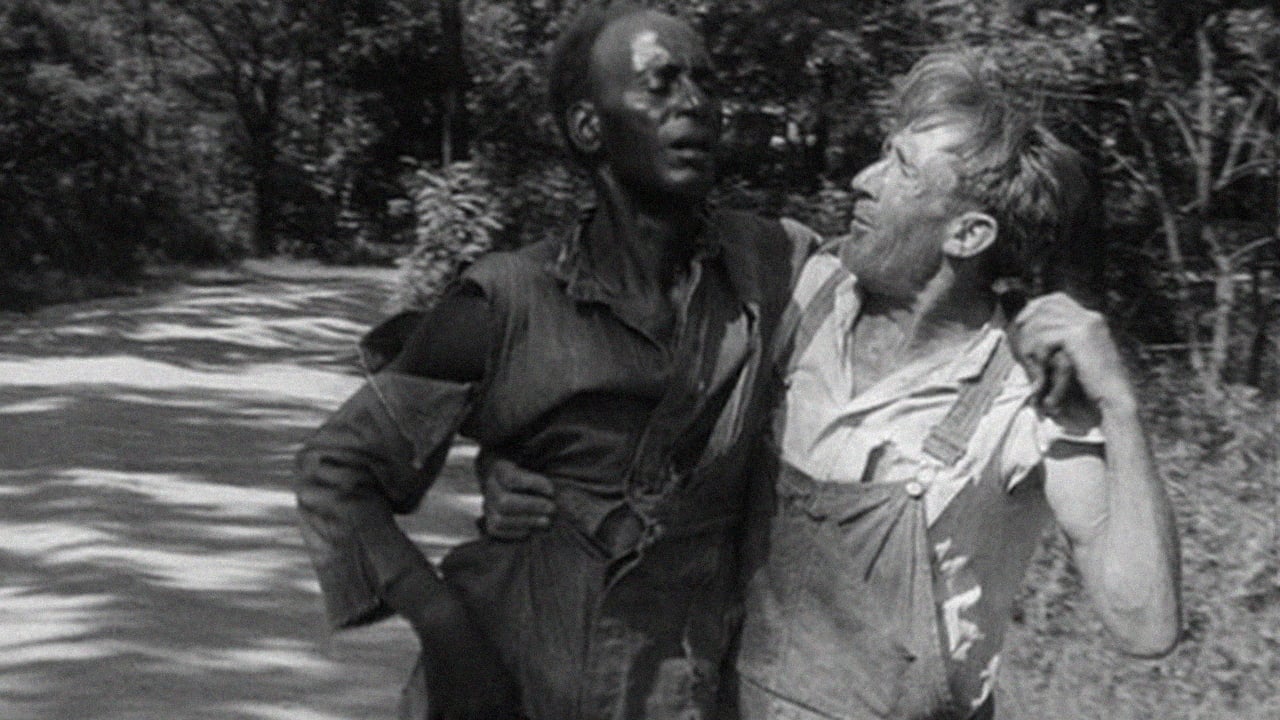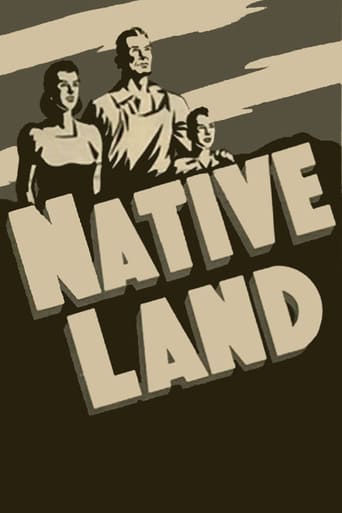ThiefHott
Too much of everything
KnotStronger
This is a must-see and one of the best documentaries - and films - of this year.
Guillelmina
The film's masterful storytelling did its job. The message was clear. No need to overdo.
Lela
The tone of this movie is interesting -- the stakes are both dramatic and high, but it's balanced with a lot of fun, tongue and cheek dialogue.
tavm
When Paul Robeson returned to the U.S. after spending the previous 12 years in England, this was the first film here he was involved in which he narrates about the plight of various union workers being oppressed-and even killed-for speaking up. This film-directed by Paul Strand & Leo Hurwitz-is a mixture of reenactments and actual documentary footage about certain events. Compelling score by Marc Blitzstein and Robeson gives his narration some feeling. Some scenes may shock in the way many deaths occur. The tone veers back-and-forth between despair and inspiration but there always seem some purpose to what is happening and depicted. So on that note, I recommend Native Land. P.S. The disc I saw this on was part of the Paul Robeson collection and had a nice extra called "The Story of Native Land" which has Tom Hurwitz-son of co-director Leo-recount how it came to be.
MartinHafer
In light of his strong political and social leanings that Paul Robeson would narrate a strongly pro-union sort of movie. What's interesting about it is that the film links the union spirit with the same forces that fought tyranny and founded America. Much of the film consists of little vignettes that illustrate the importance of unions and the rights of workers.Unfortunately, while the film probably played pretty well back in its time (as violence against unions was more common), today it seems pretty dull and preachy. Part of it is the style and part of it is that today many of the abuses of workers in the film are not as relevant (such as safety of workers or attacks on union members for exercising their rights to free speech). And, I must point out that similar ideas were presented much better in other films, such as the union-produced "Salt of the Earth". In many ways, this is a film that historians would love but the average worker would not because of its style and subject matter. It tends to drag and probably could have made its point had the film been made in a less documentary and detached style.
maksquibs
This barely released piece of Left-Wing cinematic Op-Ed journalism fully lives up to its storied rep. Half documentary/half vignette-sized realizations on Capitalist & vigilante abuse against the Bill of Rights (with an emphasis on Union busting), it's remarkably effective as agitprop and remarkably advanced as sheer film-making. After co-lensing THE PLOW THAT BROKE THE PLAINS/'36, Leo Hurwutz & Paul Strand spent five years putting this together which would have robbed the stories of their immediacy if Pearl Harbor & WWII hadn't already muted so many political controversies 'for the duration.' But modern viewers will appreciate the remarkably up-to-date documentary techniques and the recreations which anticipate movie styles later developed by Elia Kazan & Boris Kaufman in films like ON THE WATERFRONT/'54. Paul Robeson beautifully handles the exceptional narration, and watch for noted NYC blacklisted actors like Howard de Silva & Art Smith. But the real champ here is undoubtedly Paul Strand, a great photographer whose eye is unmistakable in three museum-worthy montage sequences showing Americans going about their daily lives and celebrating holidays on the street.
John Seal
This left-wing independent feature was made at a time when the fight against fascism briefly dovetailed with the interests of American capitalism. Narrated by Paul Robeson, who also sings two songs, Native Land is an erratic but generally successful pro-union flag waver, with the right to bargain collectively presented first and foremost as constitutionally protected activity. Large parts of the film are dramatic re-enactments of union-busting activity, and these scenes veer from heart-breaking to clumsy. There are also some diversions into civil rights territory, as the KKK and other fascist nativists come in for a lambasting. Though clearly made on a budget, Native Land generally looks good and features fine cinematography by director-producer Paul Strand. Not surprisingly, many of the participants in this production (including actor Howard Da Silva) went on to be blacklisted, and the U. S. government threatened to destroy the negative. Native Land also includes some cogent and timely warnings about the extreme right's relentless disdain for democracy which still ring loud and true in 2005.

